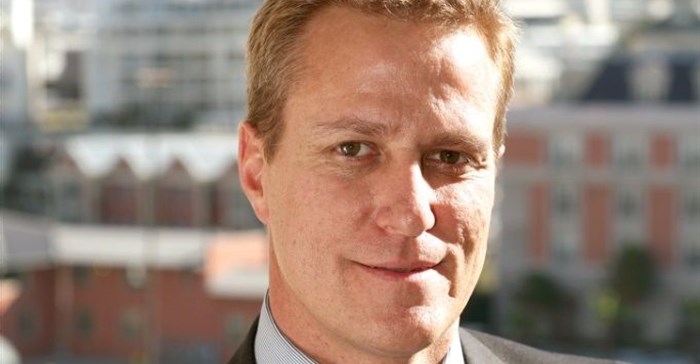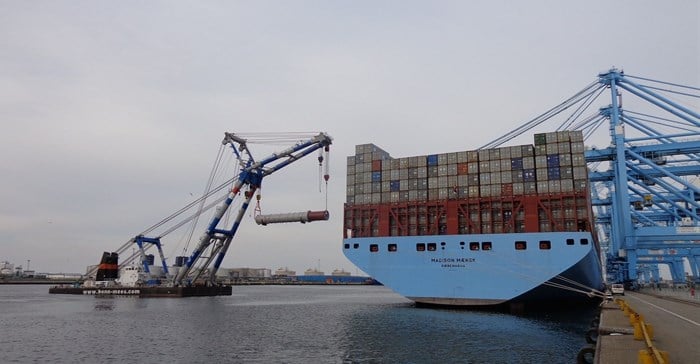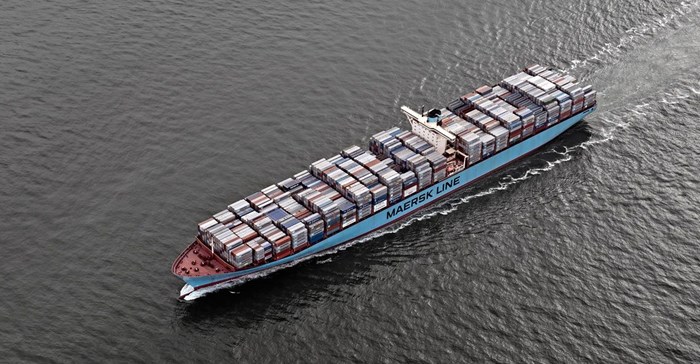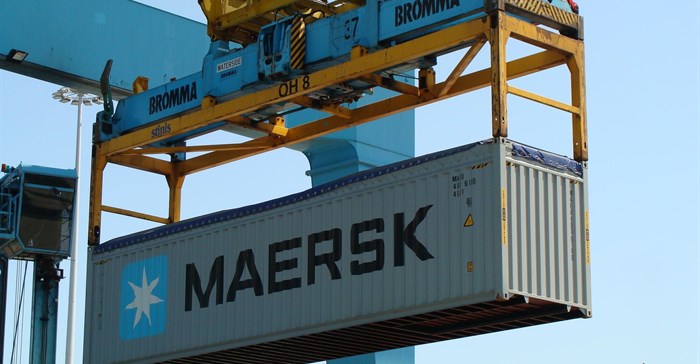#AfricaMonth: Internal trade barriers show signs of falling
We interview David Williams, Maersk Line Africa chief executive and global head of Safmarine, who says that while tackling trade barriers continues to be a challenge and remains a key priority going forward, the steadfast progress in the container trade market over time across Africa is being recognised.

Since the first call of a Maersk vessel to a port on the African continent took place well over 100 years ago, much must have changed?
A major factor which has impacted development in the region is intra-regional trade, which has experienced some much-needed growth, particularly over the past year. Intra-Africa trade, which acts as a catalyst for growth across the continent, has seen an uptick over the past year – largely due to the recovery of the oil price. It is important to note how many African countries are still fundamentally oil-dependent, like Nigeria and Angola.
Increased foreign investment is, however, beginning to reduce the dependency on oil for some of these countries. A prime example of this is the trend among Chinese tile exporters in shipping out their machinery to establish manufacturing plants in West Africa. As construction continues to gain momentum as a result of these projects, the companies will be looking to export these tiles from one African country to another, further boosting intra-regional trade.

There has reportedly been a recent boost in intra-regional trade with certain barriers showing signs of falling. What does this mean/what are the benefits for the continent and companies doing business in Africa?
The benefits which come with increased intra-Africa trade are vast and stretch far beyond just economic gain. In addition to diversifying the African economy to a greater extent, increased intra-regional trade results in the creation of better-quality employment and increased foreign investment, along with better bilateral trade – all of which will ultimately benefit the overall health of the continent and its people

With such a long-time presence in Africa, what stands out as the major challenges over the years?
Tackling trade barriers continues to be a challenge and remains a key priority going forward. We’re looking ahead and our focus is on activities where we can continue to be involved in supporting economic growth across the region for our customers, for local businesses, and for our people.
From enabling infrastructure spending through our work with African ports and railways to empowering our people through the Africa Leadership Development Programme (ALDP) – these are the kinds of activities that allow us to continue creating more opportunities in the many years to come.
Looking forward, what do you see as opportunities for Maersk, but also for other companies wanting to enter the region?
Given the recent boost in intra-regional trade and the ripple effect of growth to be expected from this, my outlook for Africa remains optimistic. Africa has a growing consumer market, which makes the region ripe for opportunity aimed at both locals and foreigners.

As such, there has been an increasing amount of interest shown by foreign investors, as well as a growing entrepreneurial spirit spreading across the continent, which should help in shifting Africa away from its dependency on raw commodity exports by moving towards a more diversified manufacturing-based trade economy.
Your message for #AfricaMonth?
We’re proud to be part of Africa and we’re optimistic about the future. We’ve invested in building our network in the region, and relocated our Safmarine head office to Cape Town last year to be closer to our trades and areas of expertise.
As a result, we have two strong brands in the region which put us in a good position to support our customers and be truly involved in promoting continued progress on the continent.
























